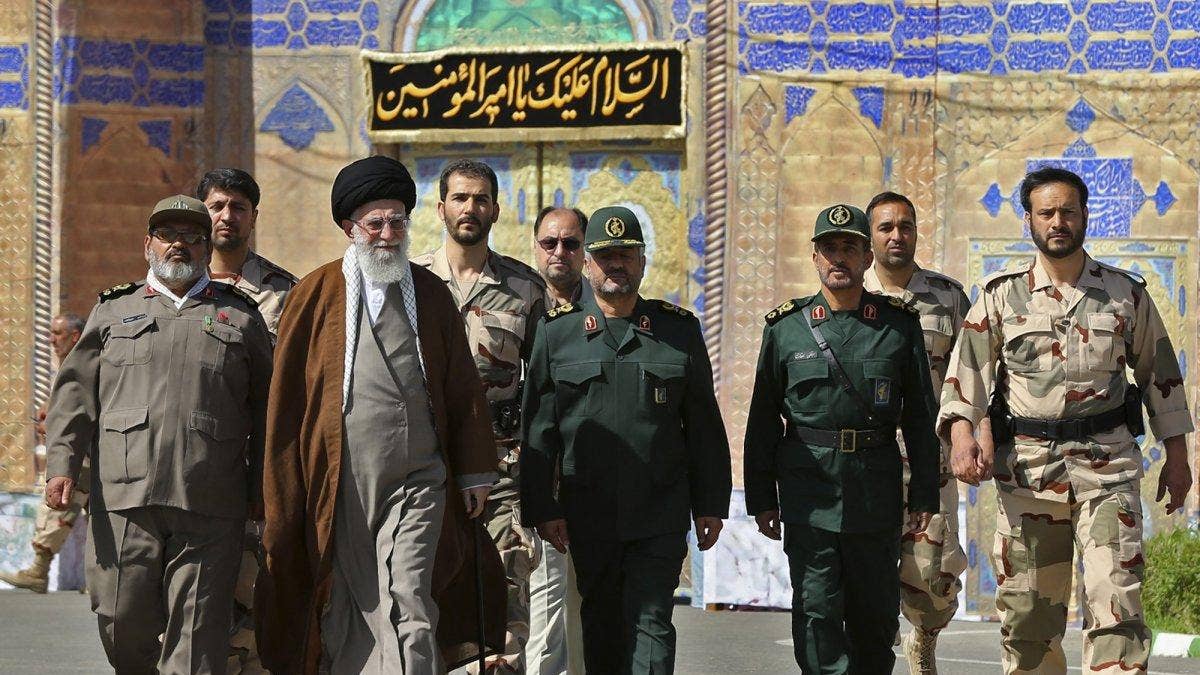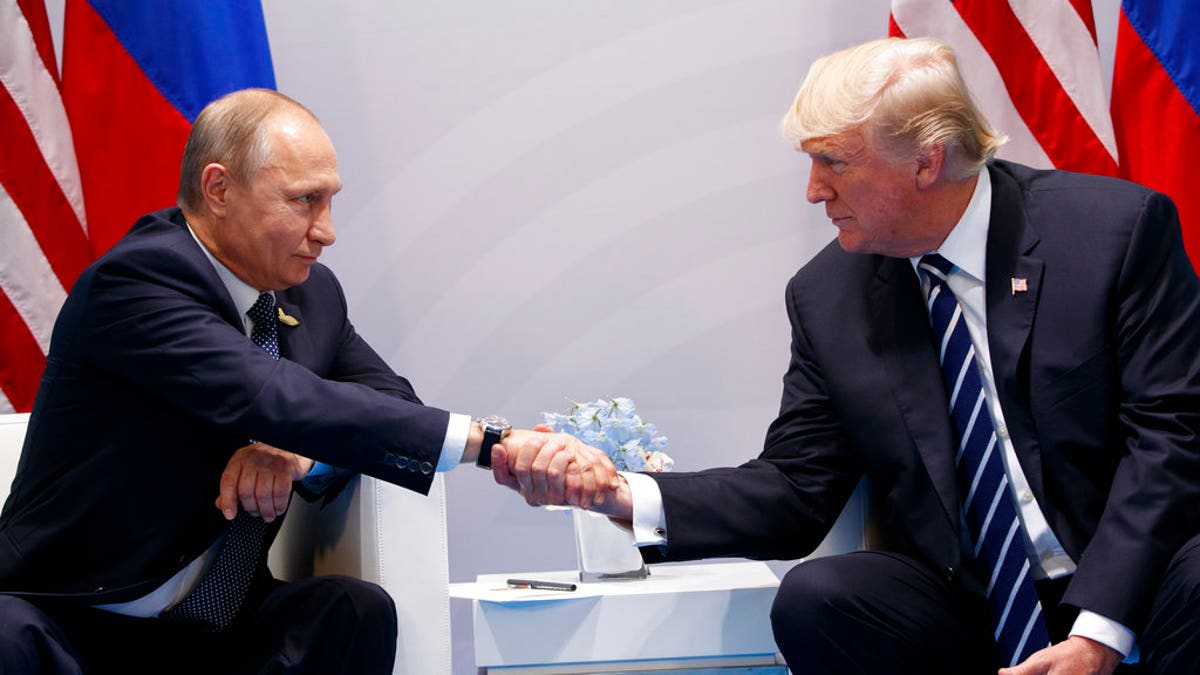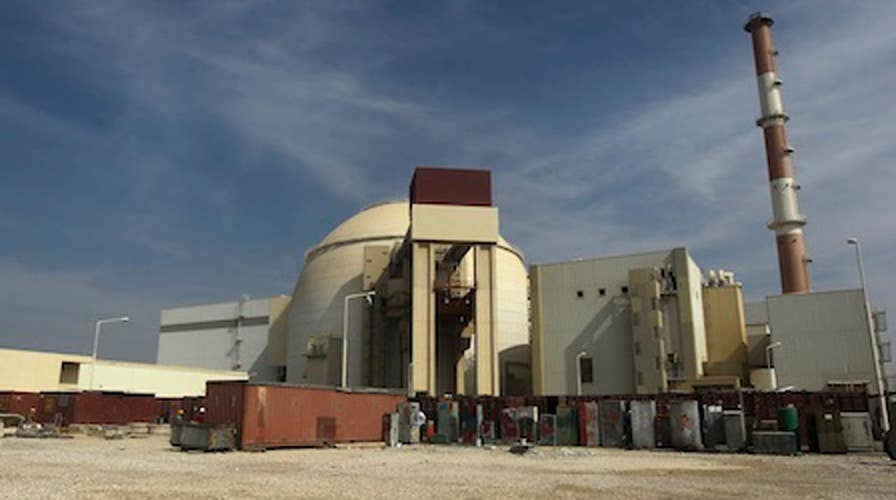Trump administration announces new sanctions against Iran
The administration says the new sanctions target more than a dozen Iranians and entities for supporting the regime's ballistic missile program; Rich Edson has more for 'Special Report'
On the second anniversary of President Obama’s nuclear deal with Iran, which President Trump sharply criticized during his campaign for the White House, the Trump administration has signaled its strong and continuing displeasure with Iran’s hostile and dangerous behavior.
The State Department announced new sanctions Tuesday on 18 Iranian entities and individuals for their support of Iran’s ballistic missile program or military purchases by the nation’s Islamic Revolutionary Guard Corps.
Although the Trump administration certified that the Islamic Republic continues in compliance with the letter of its agreement to limit its nuclear weapons program, the State Department said Iran is violating the spirit of the agreement. It said the U.S. “remains deeply concerned about Iran’s malign activities across the Middle East which undermine regional stability, and prosperity.”
The rhetoric sounds good and is a welcome change from the repeated lame excuses the Obama administration made for Iran’s destabilizing behavior. But the tough talk is deeply unserious unless we go further to constrain and ultimately depose the Mullahs ruling Iran.
Here are five additional actions the Trump administration should take quickly to more effectively counter the grave danger Iran poses to its neighbors, to our own nation and to much of the world:

First: Admit we have no basis for confidence that Iran has halted its efforts to develop nuclear weapons, even if the Islamic Republic is technically in compliance with the limited restrictions imposed by the nuclear deal.
The ability of our intelligence agencies to monitor what is going on in Iran is very limited, especially when critical work is being done in underground facilities.

President Donald Trump shakes hands with Russian President Vladimir Putin at the G20 Summit, Friday, July 7, 2017, in Hamburg. (AP Photo/Evan Vucci) (AP)
We have never determined how much weapons-grade uranium Iran has produced. Nor is the amount of fissionable material the limiting factor in the size of a nuclear arsenal, since the more sophisticated the weapon the less of that material it uses.
We do know that Iran’s long-range missile programs are advancing at breakneck speed and that its nuclear program is focused on miniaturizing warheads. We can’t be complacent about this, as we were with North Korea until it was too late.
Second: Since the Islamic Republic was born and lives by its belief in “death to America,” the U.S. objective should be to limit the military, political and economic resources by which Iran can harm us – and ultimately to knock the oppressive regime out of power and restore freedom and human rights to the Iranian people.
Because the nuclear deal was never ratified by the U.S. Senate and is mere agreement rather than a treaty, it places our nation under precisely zero legal obligation to anyone. Nor does it restrict our freedom of action, to be pursued as circumstances permit.
Third: Realize that since some U.S. policies foster Iran’s power, much can be accomplished by changing those policies. For example, we should support efforts of Saudi Arabia, Egypt, the United Arab Emirates and Bahrain to force tiny Qatar to give up its alliance with Iran and its support of terrorist groups – actions that would deal a serious blow to Iran.
We should also make clear to the government of Lebanon that if the Iranian-backed Hezbollah forces that now dominate Lebanon again attack Israel we will not restrain Israel from defending itself and striking back hard. This will reduce the chances Hezbollah and Iran will launch another war against the Jewish state.
The U.S. government could also undercut Iran’s power by abandoning the illusion that Iraq’s government is anything other than a Shia entity tied to Iran, and by asserting our support for the Kurds and Turkey against the Iran-Iraq alliance.
Fourth: Realize that Russia is an important player, and that Iran cannot and will not stray too far from Russia’s interests. Russia’s concrete, limited ambitions do not include suffering on Iran’s behalf. U.S. diplomacy can leverage Russia’s major interests regarding the United States to limit Russian actions supporting its lesser interests regarding to Iran.
Fifth: Iran itself is even more vulnerable to U.S sanctions than it was when the nuclear deal was made two years ago. The agreement lifted Iran’s economy from its dire state. But the bulk of the new wealth has gone to weapons, foreign adventures, corruption and other inefficient investment bringing little benefit to the Iranian people. Were harsher sanctions to bite now, they might well produce a revolution.
All we need is sufficient courage to impose broad sanctions on a secondary basis. That is: no U.S. entity will be allowed to deal with any entity anywhere that deals with the sanctioned part of Iran’s economy – banking and money transfer, energy, food and all manner of parts for industrial equipment.
Our foreign policy establishment would object to this as far too drastic action. But President Trump should press forward.
The last two years have shown that President Obama’s efforts to change the Iranian government’s behavior by playing nice have been a dismal failure.
President Trump should act to bring the dangerous Iranian regime to its knees.
Angelo M. Codevilla is professor emeritus of international relations at Boston University.

